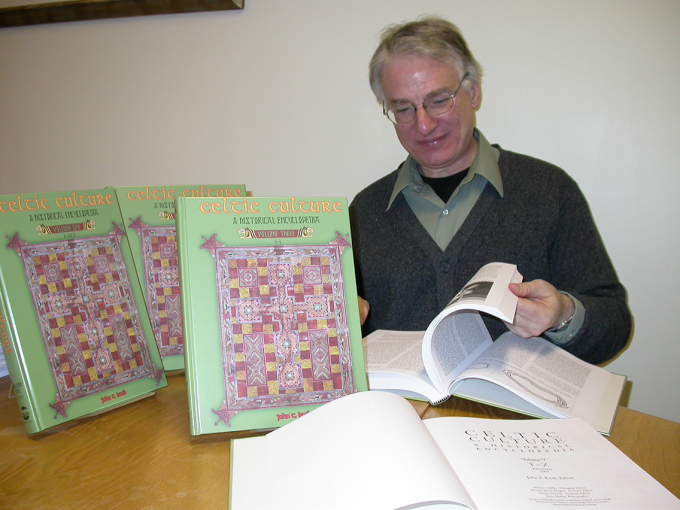The Celtic Languages and Cultural Identity

The Celtic Languages and Cultural Identity: A Multidisciplinary Synthesis
Celticity has historically been a chronically vague and indefinable concept, but also one of special importance for the identities of the Celtic countries and for the development of our perception of their history, and for the early history of Europe.
It is a subject which has for decades now attracted considerable controversy and sustained heated debates among both the public at large and in academic circles. To a great extent, our understanding of the proper place and status of Wales, Ireland, Scotland, and Brittany – as nations in Europe and as parts of the world – depends on the significance attached to the concept of Celticity. Since 1998 an international team of full-time researchers led by Professor John T. Koch has striven to research and to reveal in full detail the connections between the story of the Celtic languages and the cultural history of Europe, tracing the evidence of Celtic speech and the cultures of its speakers from the pre-Roman Iron Age to today.
Financial support of £144,000 was provided by the Arts and Humanities Research Council (AHRC), which enabled the Centre to appoint two full-time researchers over four years. Scholarly advice and support was provided by an Advisory Panel recruited from internationally recognized scholars from around the world. Within the framework of the project, a team of archaeologists, linguists, historians and philologists prepared a series of ground-breaking and fundamental works. The Celtic Languages and Cultural Identity project published Celtic Culture: A Historical Encyclopedia, a five-volume encyclopedia of Celtic history and culture (2005), and An Atlas for Celtic Studies (2007), in addition to online resources for researchers into Celtic history and culture.
